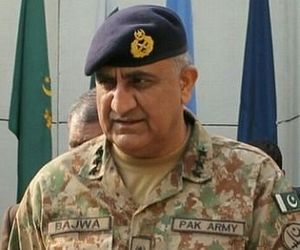Pakistan’s incumbent Chief of Army Staff (COAS) General Raheel Sharif is set to retire on November 29. The Prime Minister of Pakistan Nawaz Sharif, has nominated Lieutenant General Qamar Javed Bajwa as the 16th COAS. The rumor mill about a possible extension of General Sharif’s term as the COAS was laid to rest by the former’s farewell visits around the country, where he has openly talked about handing over power to his successor.
Undoubtedly, General Sharif’s term as COAS will be remembered as the one in which Pakistan took its first decisive step toward dealing with militancy within the country. General Sharif is credited with initiating numerous military operations, particularly the Waziristan operation that has significantly degraded the Pakistani Taliban’s ability to mount effective attacks in the country.
Historically, the COAS in Pakistan has not followed the tradition of voluntary resignation: General Sharif is the second Pakistani military chief ever to voluntarily resign from his position. The current military chief’s decisive intervention in some strategic areas that were previously left untouched by his predecessors has brought Pakistan to a stage where the country cannot afford to step away from its ongoing approach to counterinsurgency. Moreover, at the same time, the country cannot risk reverting to other policies that will only trump the military gains the country has been able to produce in the last few years. The challenges in this regard are plenty for the next military chief. Three main challenges stand out in this regard.
First, Bajwa will be handed over an army that has consolidated its position in the country’s tribal areas, which were once considered a haven for militants. However, the challenge in this regard comes from the new Army chief’s ability to deal with militant groups based in Pakistan’s urban areas, which didn’t become part of General Sharif’s counter-insurgency operations. Not only did the military under General Sharif prove unable to push for the regulation of madrasas (religious schools) across the country, but it has also withdrawn from taking on other sectarian and jihadi militant groups. Lashkar-e-Jhangvi (LEJ) is the only major militant group that Pakistan’s military has attempted take on in the country’s urban areas. However, the blowbackin this case has been terrifying.
Under the country’s National Action Plan (NAP) against terrorism, Pakistan was to act against all banned militant groups while ensuring the speedy regulation of religious schools. In reality, the country’s security agencies have turned a blind eye to the banned sectarian militant groups after an initial period of aggressive posturing that only highlighted the risks and dangers associated with such a military campaign. In this regard, Bajwa faces a simple mission: Unless the military fleshes out the entire militant network from the country and contains the madrasas fanning the fires of militancy, the military gains produced in the last few years will be lost soon.
Second, the change of command in the military always begins a new cycle of stormy controversy where the civilian leadership is expected to come to terms with the policy and style of the Army’s new leadership. In case of civilian non-compliance, the military leadership is known to have employed a range of actions, such as instigating protest campaigns through various political and religious parties. There are two main challenges in this domain: First, the incoming military chief will have to work on ensuring an already delicate civil-military balance in times when political instability in the country doesn’t even serve the military’s interests. Second, in order to act against militant groups in Punjab, the new military leadership will certainly ask for the civilian government’s open support. So far, the civilian government has remained reluctant to offer any support fearing political and security backlash. The military, on the other hand, doesn’t want to act alone like it did in Waziristan. A military operation in Punjab and in the country’s other dense urban areas will not go off without significant costs, including lost public approval. If the military under General Bajwa decides to act against militant groups based in Pakistan’s urban areas, then an understanding between the civilian and military leadership would be necessary.
Third, Pakistan’s deepening tensions with India are likely to leave the incoming military chief with divided attention between the domestic and external fronts at a time when the country’s internal security challenge is at a crossroads. Currently, any sort of accommodation and reconciliation between India and Pakistan appears unlikely. In this regard, Bajwa’s challenge rests in formulating a policy that would decrease tensions on external front without giving in to New Dehli’s demands. The military’s prestige as an institution in Pakistan rests on the foundation of citing India as “Pakistan’s number one enemy.” Moreover, India’s open campaign to isolate Pakistan internationally is likely to receive some boost with Donald Trump’s rise in the United States. Historically, Pakistan’s relations with the U.S. have been managed by the military. Under a Donald Trump presidency, the incoming military chief will find it hard to sell the policy of selective counter-terrorism, especially with India actively lobbying against Islamabad’s interests in Washington.
If the last three years of General Sharif as the military chief gave Pakistan a sense of direction in its fight against militancy, the next three years of General Bajwa will surely define the country’s fate given the plethora of security challenges Pakistan faces.

































